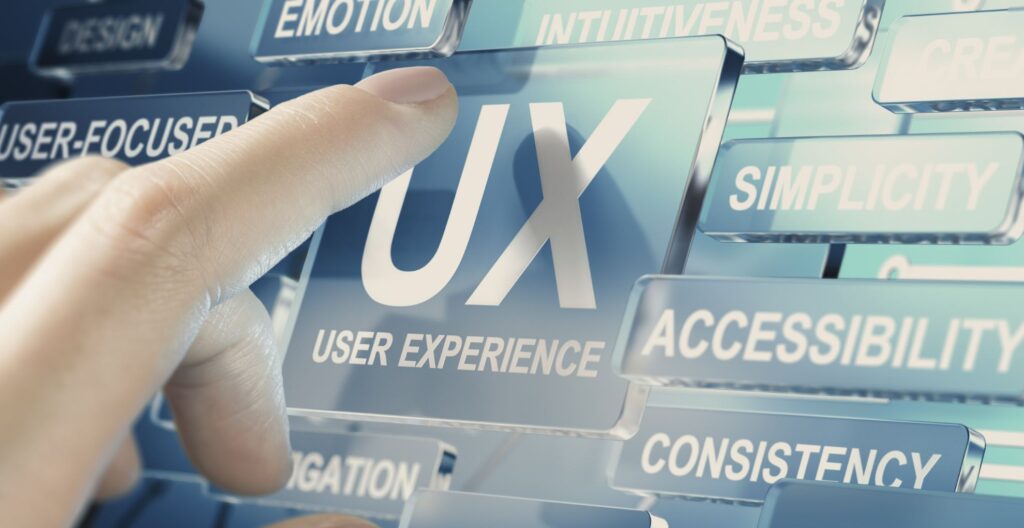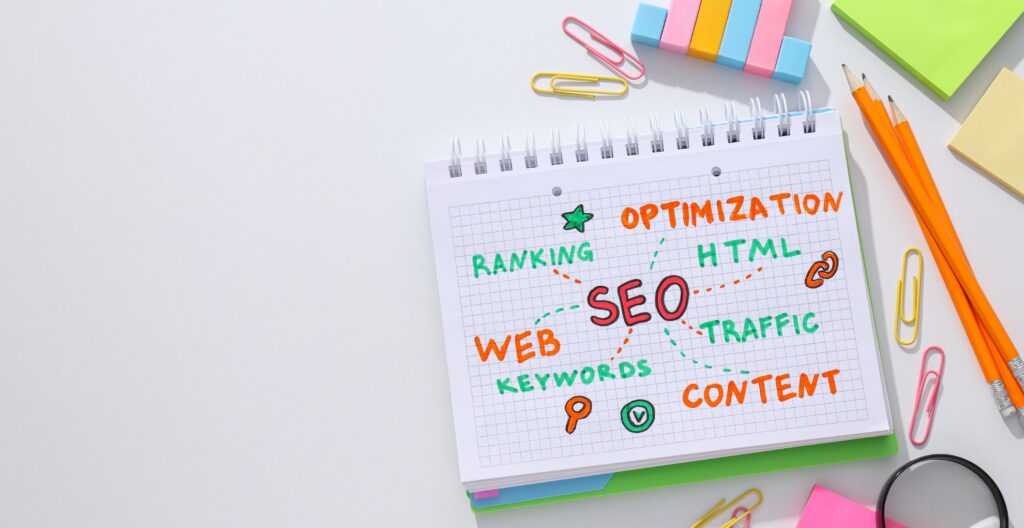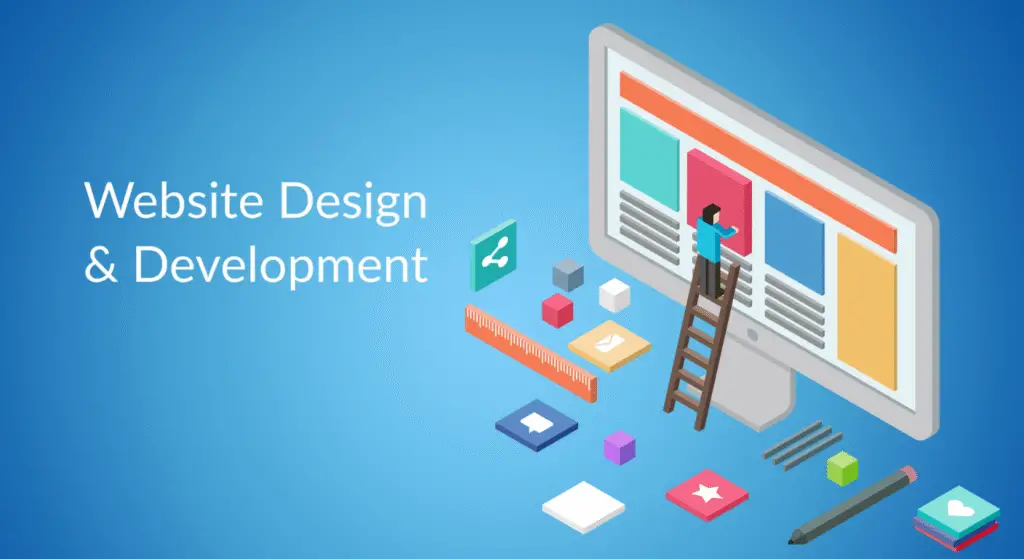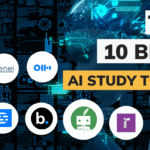In today’s digital-first world, having a website isn’t just a luxury—it’s essential. Whether you’re running an online store, personal blog, or business website, your website is often the first impression people have of your brand.
But have you ever paused to think about what goes into building a website?
You might have heard the terms “website design” and “website development”, but do you know the difference? If not, don’t worry—this beginner-friendly guide breaks it all down for you!
Understanding Website Design: The Look and Feel
Website design focuses on how your website looks and feels. It’s all about visuals, layout, colours, fonts, and how users interact with your site.
Think of it like interior design for your digital space—making it attractive, welcoming, and easy to navigate.
User Experience (UX) and User Interface (UI)
Two buzzwords you’ll encounter in web design are UX (User Experience) and UI (User Interface).
- UX focuses on how users feel when using the site, ensuring it’s intuitive and frustration-free.
- UI focuses on the actual elements users interact with—buttons, sliders, forms, menus, and more.
When these work together seamlessly, your visitors will have a smooth, enjoyable experience, increasing engagement and conversions.

What Is Website Development?
The process of transforming a website design into an actual, functional website is known as website development. Development is the coding that goes on behind the scenes to make everything work, whereas design is the appearance and feel. The code that makes buttons clickable, contact forms submit data, and links load is written by developers. Front-end and back-end development are the two primary categories of website development.
Front-End Development
It concentrates on the areas of the website that users view and use. Front-end developers use HTML, CSS, and JavaScript to translate the web designer’s layout into code. They ensure that the website functions and looks good across a range of browsers and devices.
For example, when you click on a menu, scroll down a page, or see an animation, that’s all the work of front-end developers.
Back-End Development
With back-end development, it’s all about what’s going on behind the curtain. You’re never going to see this section of the site, but it’s incredibly important. Back-end developers build and maintain databases, servers, and the logic of what powers a website’s features.
For instance, when you log in or fill out a form, your information is processed, verified and securely stored in the back-end. Backend developers work with Python, PHP, Ruby and databases such as Mysql or Mongodb.
Full-Stack Development
Some developers build both the front-end and back-end. Those pros are known as full-stack developers. They get the full range of web design, how to make the website look right and put together a website that both looks good and works behind the scenes.
Full-stack development is a powerful skill as it captures both creative and technical expertise, helping professionals create and manage full-fledged websites.

The Process of Creating a Website: Step by Step
-
Planning
Define goals, target audience, key features, and site structure. -
Designing
Create visual mockups using tools like Figma, Adobe XD, or Sketch. -
Development
Front-end and back-end developers bring the design to life. -
Testing
Test the site across browsers and devices to squash bugs. -
Launch
Make the site live and open to the world. -
Maintenance
Keep the site updated, fast, and secure post-launch.
Popular Tools Used in Website Design and Development
-
Design Tools: Figma, Adobe XD, Canva
-
Front-End Tech: HTML, CSS, JavaScript, React
-
Back-End Tech: PHP, Python, Node.js
-
CMS & Builders: WordPress, Wix, Shopify
For beginners, platforms like Wix and WordPress are great starting points—no coding required!

Key Difference Between Web Design and Web Development
| Web Design | Web Development |
|---|---|
| Visual appearance & layout | Website functionality & code |
| User experience (UX/UI) | Front-end & back-end logic |
| Tools: Figma, Adobe XD | Languages: HTML, CSS, JS, PHP |
Why Good Website Design & Development Matters
A well-designed and developed website:
-
Builds trust and credibility
-
Looks great on any device
-
Loads fast and performs well
-
Supports your business goals and conversions
Remember: Great design with poor functionality frustrates users.
And excellent functionality with poor design drives visitors away.
Both need to work hand-in-hand for online success.
Conclusion
At first glance, website design and development might feel technical and overwhelming. But once you break it down, it becomes much more approachable.
Web design focuses on how your site looks and feels, while web development ensures it works smoothly behind the scenes.
Together, they form the backbone of your digital presence.
So, whether you’re starting a personal blog, portfolio, or e-commerce site, understanding these basics will help you make better decisions—and maybe even inspire you to learn more!
About Wisesuits
At Wisesuits, we help businesses, startups, and entrepreneurs craft powerful websites that not only look amazing but also drive results.
Whether you’re looking for professional website design, seamless development, or hassle-free website management, our team is here to help.
📞 Contact Us
Ready to take your website idea to the next level?
Visit https://wisesuits.com/
Read More – Top 6 Best Noise-Cancelling Headphones in the USA
Read More – Top Smart Home Devices in the USA (2025)



Pingback: Top Jobs in India for Freshers & Best Career After 12th Arts Content Hub Pro
Pingback: Top Tips to Play Teen Patti Online for Real Cash
Pingback: Digital Marketing for Small Businesses: Strategies to Outshine
Pingback: 5 Smart Strategies to Sell Used Plastic Equipment Quickly Content Hub Pro
Pingback: The production process of Cole Buxton Tracksuit
Pingback: Why You Should Shop at Hellstar T-shirt Official Store